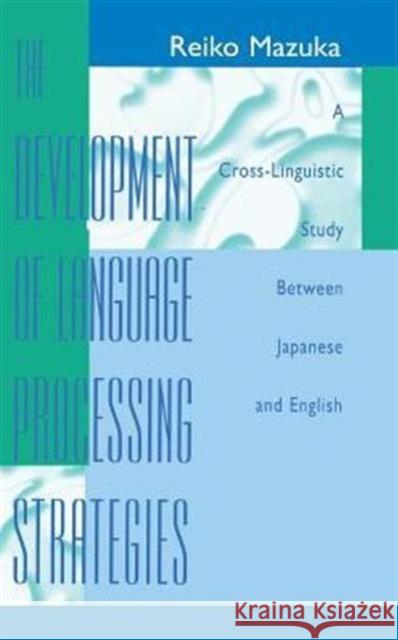The Development of Language Processing Strategies : A Cross-linguistic Study Between Japanese and English » książka
The Development of Language Processing Strategies : A Cross-linguistic Study Between Japanese and English
ISBN-13: 9780805812961 / Angielski / Twarda / 1998 / 168 str.
The Development of Language Processing Strategies : A Cross-linguistic Study Between Japanese and English
ISBN-13: 9780805812961 / Angielski / Twarda / 1998 / 168 str.
(netto: 676,35 VAT: 5%)
Najniższa cena z 30 dni: 654,86
ok. 16-18 dni roboczych.
Darmowa dostawa!
Ever since the notion of explanatory adequacy was promoted by Chomsky in his 1965 Aspects, linguists and psycholinguists have been in pursuit of a psychologically valid theory of grammar. To be explanatorily adequate, a theory of grammar can not only describe the general characteristics of a language but can also account for the underlying psychological processes of acquiring and processing that language. To be considered psychologically valid, a grammar must be learnable by ordinary children (the problem of acquisition) and must generate sentences that are parsable by ordinary people (the problem of processing). Ultimately, the fields of language acquisition and processing are concerned with the same goal: to build a theory that accounts for grammar as it is acquired by children; accessed in comprehension and production of speech; and represented within the human mind. Unfortunately, however, these two fields developed independently and have rarely been well-informed about each other's concerns. Both have experienced past difficulties as a result.











